by Denise Crawley
A cold beer on a hot Florida day is a simple pleasure many of us enjoy. But have you ever wondered where that refreshing taste comes from? It all begins with the humble hop plant.
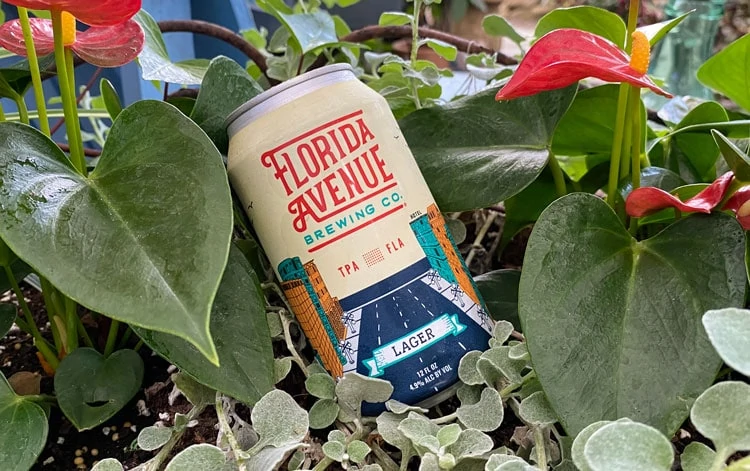
The entire process, from planting hops to enjoying a finished beer, is a blend of art and science that requires careful attention to detail, an understanding of both botany and brewing and a passion for quality beer.
Hops 101
Hops are the flowers of the hop plant, Humulus lupulus, and they are a key ingredient in beer production. The plant is part of the Cannabaceae family which also includes hemp, and it comes in many different varieties each with its unique flavor.
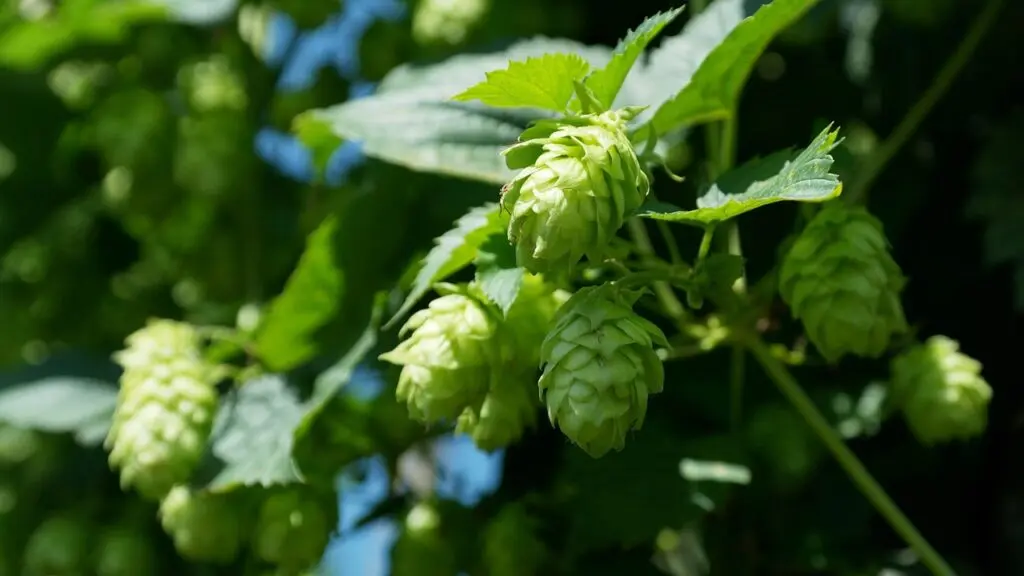
This vigorous, climbing, herbaceous perennial starts its life from rhizomes that are planted in early spring.
By late summer, the vines produce the prized hop cones which are harvested, dried, then boiled along with malted barley and water to extract the bitterness, flavor, and aroma. Some brewers turn dried hops into pellets for easier storage and use.
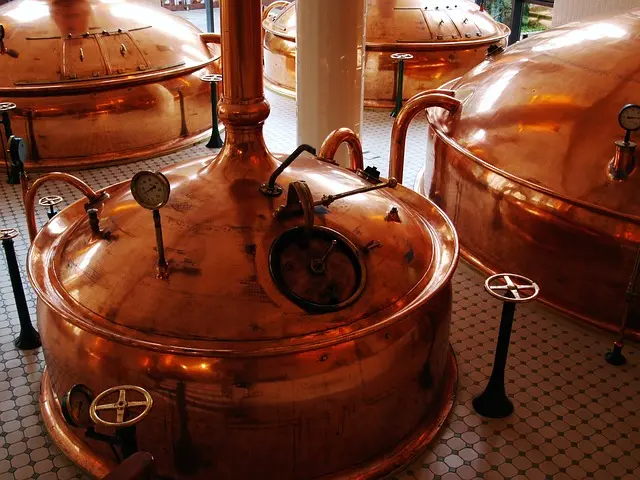
After boiling, yeast is introduced to ferment the sugars into alcohol, and the beer is allowed to mature to develop its unique characteristics. The final product is then filtered, carbonated if necessary, and bottled for enjoyment.
Growing Hops
Hops thrive best in temperate climates, with the majority of commercial hop farming occurring in states like Washington, Oregon, and Idaho.
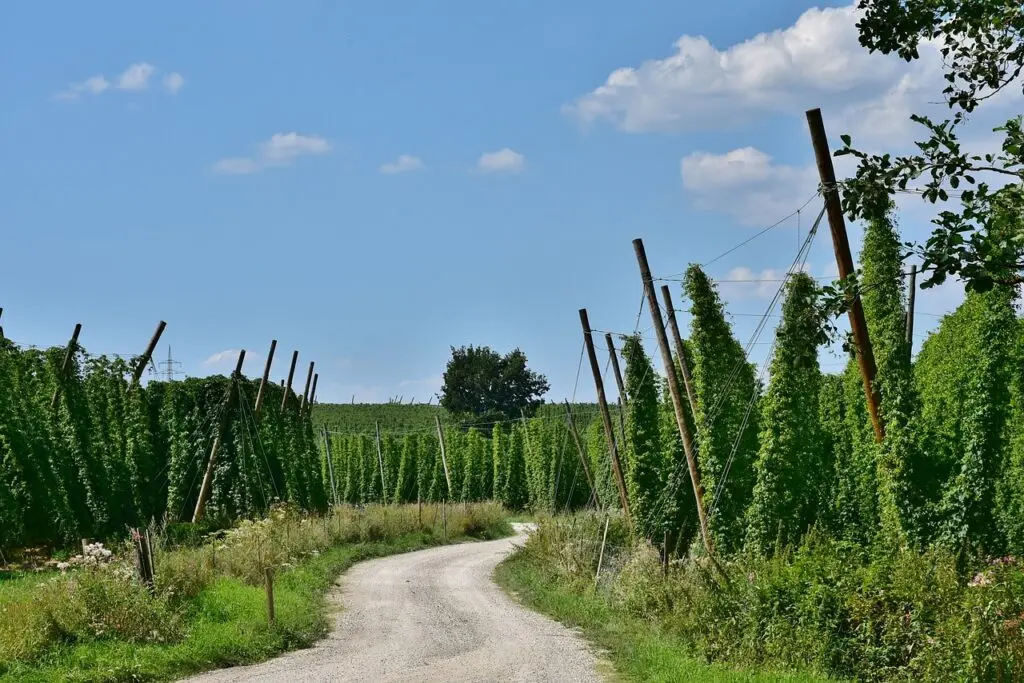
Growing hops here in Florida presents unique challenges. The high humidity and temperature can affect the growth and quality of the hops, but it’s not entirely out of the question.
If you can find heat-tolerant varieties and provide careful attention to watering, shading, and disease control, you may have success on a small scale.
Here are a few heat-loving hops varieties you can try:
- Cascade: Known for its versatility and resistance to disease, Cascade is often cited by home growers in warmer climates.
- Chinook: This variety is known for its robust growth and might be suitable for warmer areas.
- Nugget: Nugget hops are known for their vigor and might be adaptable to various growing conditions.
Alternative Brewing Botanicals for Florida Gardeners
For those looking to explore gardening and brewing in Florida, traditional hops may not be the most suitable option. But don’t let that deter you– there are other more suitable plant options beyond traditional hops.
Hops have natural preservative qualities that help beer keep longer, and the flavor gradually became the preferred choice over time. Historically, before the widespread use of hops, a mixture of herbs and plants known as “gruit” was used to flavor and preserve beer.
The following plants can be used in place of hops to create unique and complex flavors:
- Yarrow (Achillea millefolium): Known for its bittering properties, it was used before hops became prevalent.
- Heather (Calluna vulgaris): Used in some traditional Scottish ales.
- Spruce Tips (Picea spp): These can add a unique, piney flavor.
- Chamomile (Matricaria chamomilla or Chamaemelum nobile): Often used for its calming, floral notes.
- Lavender (Lavandula angustifolia): Adds a fragrant, herbal touch.
- Sage (Salvia officinalis): Known for its savory, peppery flavor.
- Mugwort (Artemisia vulgaris): Another bittering agent.
Today, some craft brewers are revisiting using gruit to create unique and complex beers, but it’s worth noting that brewing with gruit can be more complex and unpredictable than using hops.
Your Garden, Your Brew
Home brewing with botanicals is an exciting venture that’s more accessible than you might think. With basic equipment like a brew kettle, fermenter, airlock, and some bottles or kegs, you can craft unique flavors right from your garden into a beer that’s uniquely yours. Who knows? Your next favorite brew might be waiting in your backyard, ready to be discovered.
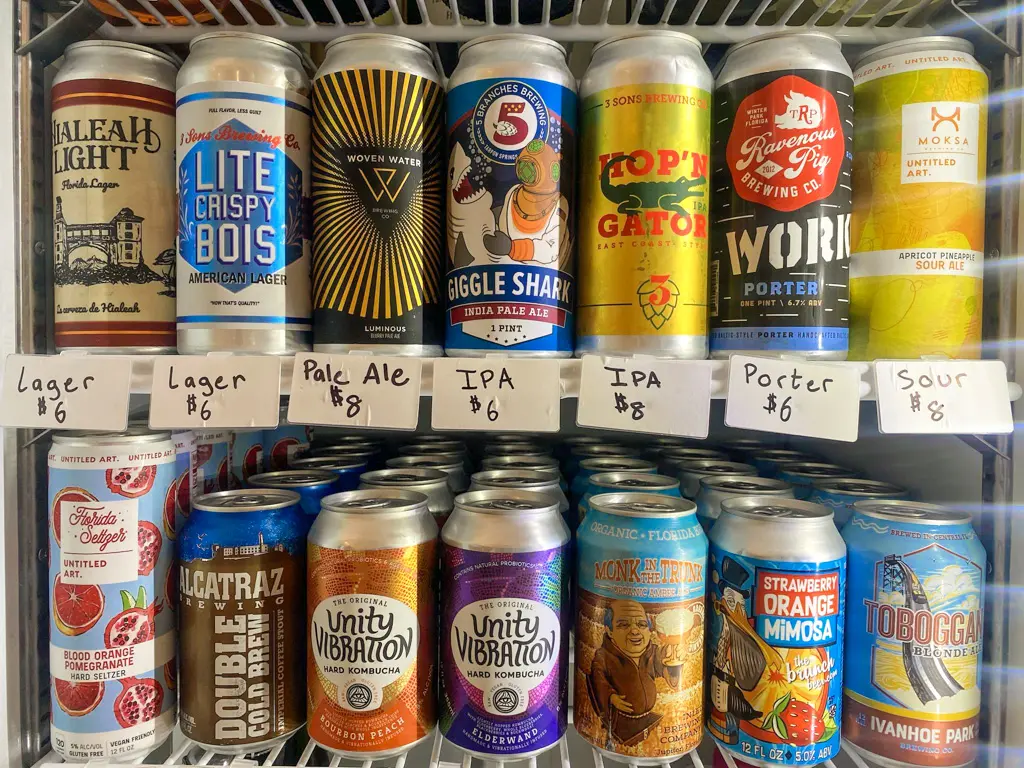
If you’re not quite ready to brew your own, why not explore some local flavors? Come visit us at Rockledge Gardens, where we proudly offer a selection of Florida-brewed beers. Experience the taste of local craftsmanship and maybe find inspiration for your own brewing adventure. Happy gardening and brewing!


